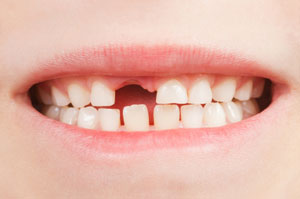Urine used to create teeth - stem cell success
Featured ArticleMain Category: DentistryAlso Included In: Stem Cell ResearchArticle Date: 30 Jul 2013 - 6:00 PDT
Current ratings for:
Urine used to create teeth - stem cell success
| Patient / Public: |  |
2.84 (19 votes)
|
| Healthcare Prof: |  |
2.83 (6 votes)
|
| Article opinions: | 14 posts |
Stem cell research is opening up the way for new teeth "grown" from an unlikely source - human urine.
Chinese researchers describe how
stem cells derived from urine could be used to generate solid organs and tissues, including teeth. Their study is published this week in the open-access journal
Cell Regeneration. The researchers hope the technique might one day help provide new, tailor-made teeth for dental patients.
Previous stem cell research has shown how cells can be generated from urine. It is also known that cells discarded with urea can become induced pluripotent stem cells (iPSCs) that can then generate many different cell types, including neurons and heart muscle cells.
Tissue culture breakthrough
Duanqing Pei and his colleagues from Guangzhou Institutes of Biomedicine and Health, and other Chinese universities have developed a novel chimeric tissue culture system that can coax these iPSCs into tiny structures that resemble teeth.
Their system mimics normal tooth development, which results from an interaction between two different cell types: epithelial cells, producing enamel, and mesenchymal cells, which generate the other three main tooth components of dentin, cementum and pulp.
 Stem cells could one day be used to 'grow' new teeth
Stem cells could one day be used to 'grow' new teeth
First, the team used chemicals to coax the cultured iPSCs into flat sheets of epithelial cells. They then mixed these cells with mouse embryonic mesenchymal cells, and transplanted them into mice.
Three weeks later, formations had grown that physically and structurally resembled human teeth. They are of roughly the same elasticity, and contain pulp, dentin and enamel-forming cells.
The hope for regenerative medicine
Though these structures are a new achievement, the method involves mouse cells, has a success rate of just 30% and the structures produced are only about one-third as hard as human teeth.
To resolve these issues, the team say human mesenchymal stem cells could be substituted for mouse ones and the tissue culture conditions tweaked. In theory, this revised method could create a bioengineered tooth bud, cultured in a jar and then transplanted into the jawbone of a human patient to form a fully functional tooth.
iPSCs remain a great source of hope for regenerative medicine. Not only do they avoid the controversial use of embryos, but they also come from a more readily accessible source than even cultured skin and blood. Furthermore, cells generated by this method cannot be rejected by the human immune system, being derived from the host's own cellular material.
Written by: Nick Valentine
Copyright: Medical News Today Not to be reproduced without permission of Medical News Today






